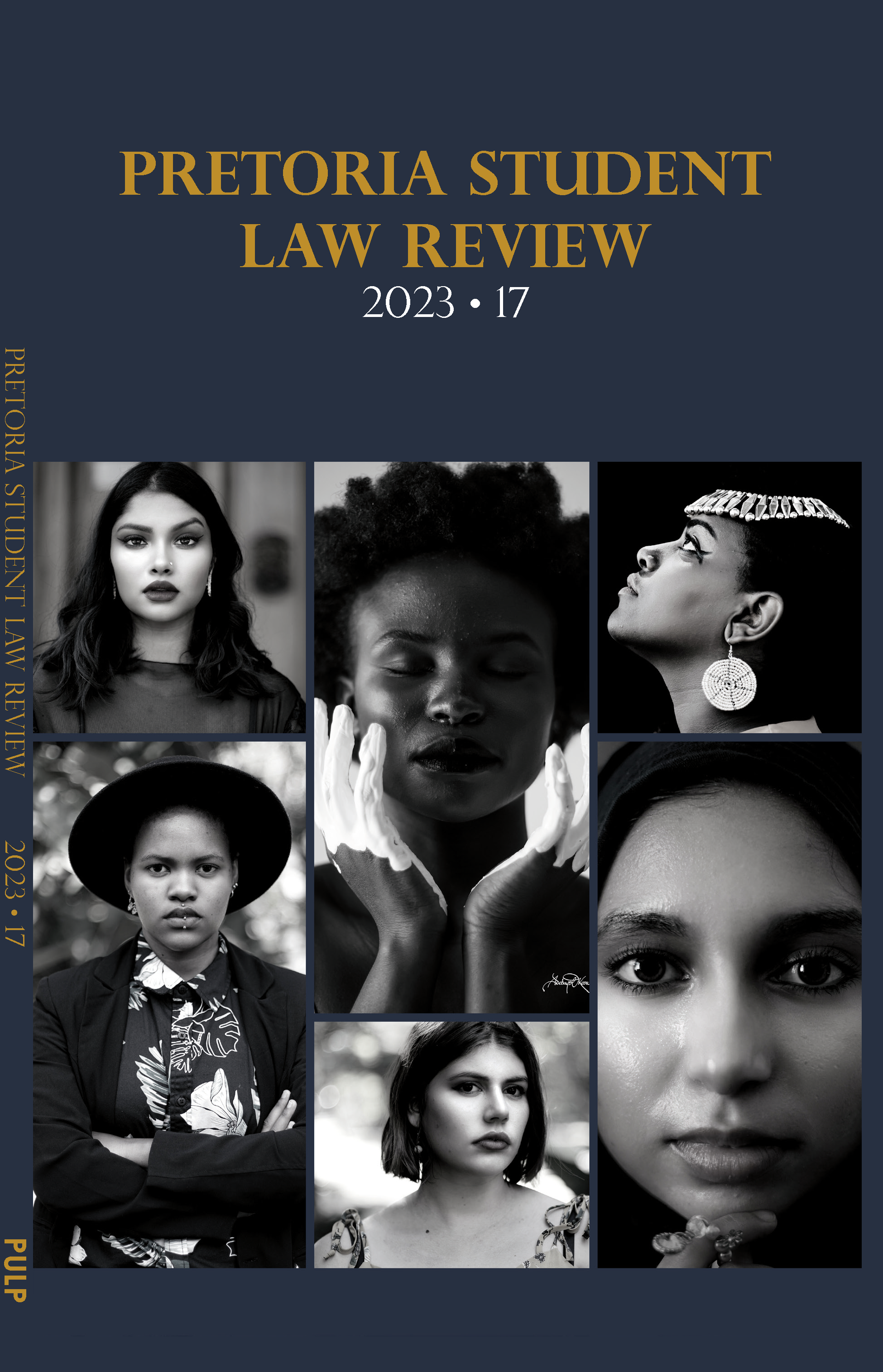‘Consent’ and confusion casting doubt on the validity of a customary marriage: Mgenge v Mokoena & another [2023] JOL 58107 (GJ)
DOI:
https://doi.org/10.29053/pslr.v17i1.5098Abstract
In Mgenge v Mokoena & another [2023] JOL 58107 (GJ), the Gauteng High Court, Johannesburg, per Rome AJ, considered the validity of a customary marriage concluded between the bride (the first respondent) and the deceased groom with reference to the requirements outlined in section 3 of the Recognition of Customary Marriages Act 120 of 1998. The mother of the groom (the applicant) challenged the validity of the marriage certificate. The main issue under inspection is whether the applicant’s lack of participation in, consent to, or knowledge of the customary marriage is sufficient to rebut the prima facie proof of validity offered by the marriage certificate. In this contribution, I recount the Court’s systemic approach to determine if the applicant’s misunderstanding of the purpose or intention of the events that transpired and her absence in participating in the negotiations and entering into or celebration of the customary marriage invalidates the prima facie proof offered by the marriage certificate. I explore the Court’s approach to the requirements for a valid customary marriage, specifically the negotiation and celebration requirements, as well as the integration and physical handing over of the bride. I also briefly inspect the role of expert evidence and living customary law. This judgment demonstrates the dynamic and evolving nature of living customary law in South Africa and the approaches adopted by the judiciary when exploring customary law issues like the validity of a customary marriage.





